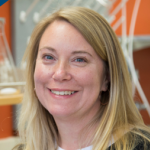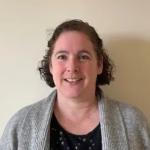Core Participants

Mark Wiesner
Duke University
Dr. Wiesner serves as the Lead Principal Investigator and Chair of the INFRAMES steering committee. As a pioneer in the fields of both water treatment and environmental nanotechnology, Dr. Wiesner is uniquely positioned to provide visionary leadership to the INFRAMES meta-Network as the community converges around the assessment of materials sustainability.
Resource Expertise: Complex systems, Informatics, Modeling, Spectroscopy and imaging
Materials Challenge Areas: Agriculture, Biological particles, Micro/nano plastics, Resource recovery and water treatment

Mélanie Auffan
European Center for Research and Education in Environmental Geosciences (CEREGE)
Dr. Auffan coordinates INFRAMES activities related to the aquatic mesocosm facility within the CEREGE and facilitates early career researcher exchanges through iNOVE, an international laboratory partnership between Duke and the CEREGE. Dr. Auffan is a Research Director within the LabEX SERENADE network and is active in several other US- and EU-based INFRAMES partner networks, including iNOVE, CEINT, Gov4Nano, the NanoSafety Cluster, and NanoInformaTIX.
Resource Expertise: Complex systems, Informatics, Modeling, Spectroscopy and imaging
Materials Challenge Areas: Resource recovery and water treatment

Christine Ogilvie Hendren
Appalachian State University
Dr. Hendren leads INFRAMES convergence efforts, drawing on her expertise in integration and implementation science (I2S) and her long experience guiding research teams through emerging and complex global challenges. In this capacity, Dr. Hendren oversees data integration efforts, provides guidance on nanoinformatics infrastructure and model interoperability, and facilitates structured activities to maximize collaboration success.
Resource Expertise: Informatics, Modeling
Materials Challenge Areas: Agriculture, Biological particles

Ralf Kaegi
Swiss Federal Institute for Aquatic Science and Technology (EAWAG)
Dr. Kaegi provides critical expertise to the INFRAMES meta-Network on the analysis of materials in complex systems. As head of the Particle Laboratory at EAWAG, he draws from well established standard characterization methods from colloidal sciences, newer methods from materials science, and novel methods developed by his team to detect, quantify and understand the effects of particles in environmental media.
Resource Expertise: Complex systems, Modeling, Spectroscopy and imaging
Materials Challenge Areas: Micro/nano plastics

Rebecca Klaper
University of Wisconsin-Milwaukee
Dr. Klaper facilitates efforts to link projects and collaborators working at the lab scale to INFRAMES resources that enable study of the same phenomena in complex experimental systems. In addition, Dr. Klaper leads development of new mesocosm-related projects around shared goals of the INFRAMES meta-Network.
Resource Expertise: Complex systems, Modeling
Materials Challenge Areas: N/A

Greg Lowry
Carnegie Mellon University
Dr. Lowry coordinates INFRAMES efforts that engage participants on advanced characterization, including the use of high energy light source facilities. In this capacity, he acts as the primary point of contact for collaborators from the U.S. National Laboratories and leads development of novel synchrotron-based methods to meet the needs of the INFRAMES research community.
Resource Expertise: Complex systems, Modeling, Spectroscopy and imaging
Materials Challenge Areas: Agriculture, Biological particles, Micro/nano plastics, Resource recovery and water treatment

Iseult Lynch
University of Birmingham
Dr. Lynch leads INFRAMES efforts to integrate US collaborators into a well-established international data curation team that sets norms around data interpretation and ontology and dictionary updates. Dr. Lynch also provides leadership to several international programs that focus on developing protocols, policy, and infrastructure to increase standardization, reproducibility, and interoperability of nanomaterial research methods and data. As part of this work, Dr. Lynch actively engages with several INFRAMES networks, including the NanoCommons, the NanoSafety Cluster, ACEnano, GRACIOUS, RiskGONE, and NanoInformaTIX.
Resource Expertise: Complex systems, Informatics, Modeling, Spectroscopy and imaging
Materials Challenge Areas: Biological particles, Micro/nano plastics

Sherine Obare
Joint School of Nanoscience and Nanoengineering
Dr. Obare leads INFRAMES activities addressing modeling platforms for predicting the fate, behavior, and impacts from nano and microphase materials in the environment. Modeling efforts overseen by Dr. Obare span length scales from molecular- to field-scale to create predictive tools for transport, transformation, and biouptake in complex environments. In addition to providing technical direction, Dr. Obare brings her passion and robust expertise in STEM education to leading INFRAMES efforts to increase STEM participation for underrepresented minorities.
Resource Expertise: Modeling, Spectroscopy and imaging
Materials Challenge Areas: N/A

Eugenia (Éva) Valsami-Jones
University of Birmingham
Dr. Valsami-Jones provides critical support to INFRAMES efforts to harmonize data reporting, develop infrastructure to enable data sharing, and ensure that experimental data can be used to parametrize models. As Coordinator of the ACENano Project, Dr. Valsami-Jones brings expertise in developing infrastructure that allows for centralized access to harmonized methods and data in adherence with Findable, Accessible, Interoperable, and Reusable (FAIR) data principles. And as Coordinator of the Nanosafety Cluster, Dr. Valsami-Jones acts as liaison to the majority of EU-affiliated networks within INFRAMES.
Resource Expertise: Complex systems, Informatics, Modeling
Materials Challenge Areas: Micro/nano plastics

Socorro Vázquez-Campos
LEITAT Technological Center
Dr. Vázquez-Campos provides critical expertise to the INFRAMES meta-Network in "safer-by design" considerations for assessing the sustainability of advanced materials. As the Scientific Coordinator of the SAbyNA network, Dr. Vázquez-Campos leads efforts to integrate relevant frameworks, methods, tools, models, and guidelines into a centralized resource platform designed to streamline materials safety assessment and guide industrial sectors toward the development of safer nano-enabled materials.
Resource Expertise: Complex systems, Informatics, Modeling
Materials Challenge Areas: N/A

Glenda Kelly
Duke University
Dr. Kelly is the Assessment Lead for the INFRAMES meta-network, with over 18 years of experience in multi-site STEM evaluation. She collects both baseline and project operation data from across INFRAMES that supports evaluation of the meta-network’s growth, connectivity, cohesion, and functioning.
Resource Expertise: N/A
Materials Challenge Areas: N/A
